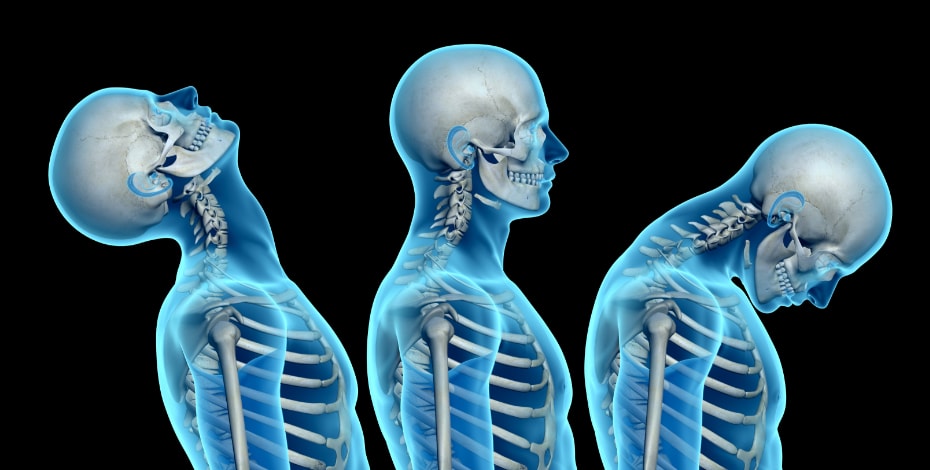
Exploring ways forward with whiplash

VIC BREAKFAST Michele Sterling will explore the impact of stress symptoms, a predictor of poor recovery, in whiplash associated disorders. Marina Williams reports.
About 50 per cent of people who have incurred a whiplash associated disorder in a motor vehicle crash will not have recovered within a year post injury, says Professor Michele Sterling, citing national and international data.
As the most common and problematic injury following a motor vehicle crash, whiplash incurs greater costs for compulsory third- party insurance schemes than other injuries, such as spinal or brain. Of those injured, 50 per cent will have varying degrees of pain, disability and mental health problems. Emerging data indicate that some people may exhibit an inherent vulnerability to develop chronic pain, which could prolong recovery outcomes.
Developing prognostic clinical prediction tools to assist clinical decision-making based on risk of poor recovery is the focus of the internationally recognised researcher, who is professor at Recover Injury Research Centre at The University of Queensland and director of the NHMRC Centre of Research Excellence in Road Traffic Injury Recovery.
Michele’s research considers the mechanisms underlying the development of chronic pain after injury, predictive algorithms for outcomes and developing effective interventions for musculoskeletal injury and pain.
Factors identified as being prognostic of poor health outcomes include initial pain intensity, initial disability, pain catastrophising, post-traumatic stress (PTS) symptoms, recovery expectations and signs of nociplastic pain.
‘Many research trials investigating traditional interventions, such as exercise programs, have shown these may not be sufficient to address complex clinical presentations seen in patients with already chronic symptoms, or those with acute whiplash pain, identified as being at high risk of poor recovery,’ Michele says.
As the guest speaker at the Victorian Branch End-of-Year Breakfast on 15 November, Michele will share her latest research, ‘Whiplash associated disorders: latest evidence for rehabilitation and recovery’, in which she explores the impact of PTS symptoms as a factor predictive of poor recovery. She advocates physiotherapists consider a broader scope of practice in a patient assessment, including looking at the risk of psychological factors, as the ‘one-size approach of exercise for all’ does not match data findings.
‘Being able to translate research to injured people is vital to them understanding their whiplash injury and achieving rehabilitation goals,’ Michele says. ‘If we think people look most likely to recover well, they will need less treatment, and those who are at risk of not recovering well receive a different type of treatment that could be more targeted towards risk factors identified in that individual. So, a stratified approach to treatment is what we are trying to look at.’
In her research, stress symptoms were the targeted risk factor in a randomised controlled trial of a combined psychological/physical intervention.
Participating physiotherapists specifically targeted the modifiable risk factor of stress symptoms, delivering stress inoculation training—in which they were trained— integrated with guideline-based exercise. People at high risk of poor recovery showed superior short- and long-term effects on disability and psychological distress. The treatment benefit was maintained at 12-month follow-up.
‘PTS symptoms are a predictor of poor recovery, yet having the physiotherapists target that in assessment and treatment didn’t take much more time than doing usual exercise-based physiotherapy,’ she says. ‘They could then help the patient develop strategies to deal with stress symptoms and problem-solving so they could try not to catastrophise about their condition, as well as not to be fearful of it nor fearful of movement or activity. Starting these sorts of processes very early on seemed to have a very good effect.’
Michele’s session will outline and discuss possible ways forward for the management of whiplash to ensure treatment targets the risk of the patient. ‘The people at risk of poorer recovery are a more complex group, and they have more psychological distress; yet the trial has shown good effect in that physiotherapists can deal with this while helping their patients.’
The Victorian Branch End-of- Year Breakfast will be held on 15 November at the MCG Members Dining Room. For more information and to register, visit australian.physio/events.
Register by 15 October and go in the draw to win a $250 ASICS voucher.
Professor Michele Sterling is an elected member of the leadership Council of the International Association for the Study of Pain. Her research findings related to the prediction of outcome following whiplash injury are included in national and international clinical guidelines for this condition.
© Copyright 2025 by Australian Physiotherapy Association. All rights reserved.





